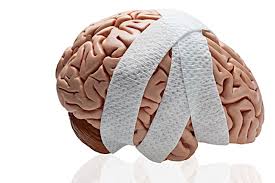Researchers have identified inflammatory biomarkers which can be used to develop a test that can help detect whether the brain has suffered injury in the first hour of accident.
The test can be used on the side of a sports pitch or by paramedics to detect traumatic brain injury -- which leads to very early alterations in inflammatory proteins -- at the scene of an accident, as well as improve clinical interventions, the researchers said.
"Traumatic brain injury is the leading cause of death and disability among young adults and, according to the World Health Organization, by 2020 this will become the world's leading cause of neurological disability across all age groups," said Lisa Hill from the University of Birmingham in the Britian.
While CST5 identified patients with severe traumatic brain injury within the first hour of injury, AXIN1 and TRAIL were able to discriminate between brain injury and uninjured patient controls in an hour.
"Early and objective pre-hospital detection of traumatic brain injury would support clinical decision making and the correct triage of major trauma," added Valentina Di Pietro from the University's Institute of Inflammation and Ageing.
Moreover, correct diagnosis of traumatic brain injury, which is one of hardest diagnosis to make in medicine, would allow clinicians to implement strategies to reduce secondary brain injury at an early stage, the researchers said.
Currently, no reliable biomarkers exist to help diagnose the severity of traumatic brain injury and identify patients who are at risk of developing secondary injuries that impair function, damage other brain structures and promote further cell death.
"In addition, this has potential implications for drug development, as novel compounds could be given immediately after injury and potentially commenced at the roadside, if there was sufficient confidence in the diagnosis of traumatic brain injury," Pietro said.
For the study, published in the journal Scientific Reports, blood samples were taken from 30 injured patients within the first hour of injury prior to the patient arriving at hospital.
For more Lifestlye news click here
(With IANS Inputs)

